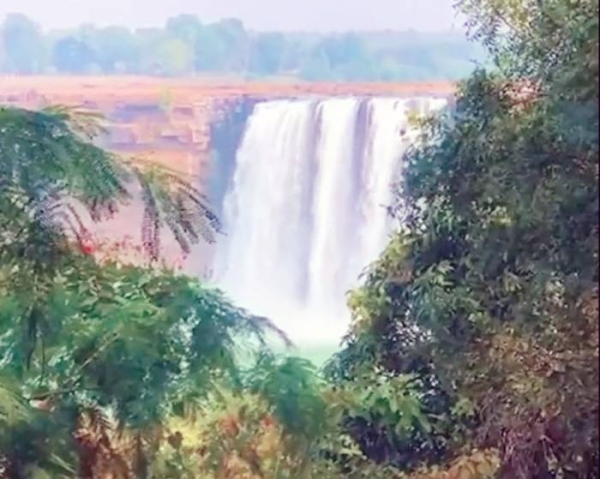NEW DELHI — India with its inherent diversity offers a complete bouquet of places to a person with wanderlust. With its wide range of mountains, seas and floras and faunas it is one of the much-coveted places to visit in the world.
The Indian government in the last few years has taken many initiative to provide enough impetus to the sector by launching cleanliness drive, providing better air connectivity to several places, improving digital connectivity in and around tourism places, building infrastructure and improving overall the hospitality sector.
As per various agencies, India’s World Tourism Ranking from 2009 to 2013 fluctuated between 62 and 65, but it reached 34 in just a few years. The Indian economy has become not only the world’s 7th largest economy in terms of tourism, but the world’s third largest when it comes to health tourism as well.
On the other hand, the medical tourism sector has grown by more than 350 percent since 2014, right before COVID pandemic, as a result of the central government’s continued attention in this regard. The revenue from this was Rs. 1.23 lakh crore in 2014, but it climbed to Rs. 2.10 lakh crore in 2019.
People from every walk of life from India and abroad are visiting the touristic places to enjoy the beauty while getting to know more about India and its mysteries.
Kevadiya symbolizes the holistic approach to tourist development, which has become an important subject to study in the tourism sector. “Earlier, the journey from Cuddapah to Vijayawada with family was very difficult. It used to take 8 to 11 hours by road, but now we can travel by flight.
“UDAN flights have made it convenient for me to travel to Kanak Durga Mata with my loved ones,” said Nagendra Bharathi, who covered the distance from Vijayawada to Cuddapah on a flight under the Ure Desh Ka Aam Nagrik (UDAN) scheme.
As the scheme reads “Let the common man of our nation fly” and this scheme helps in a common man affording a holiday and travel by air.
Meanwhile, the Pochampally village in Telangana was named the best tourism village by the UN World Tourism Organization at the 24th General Assembly of the UN World Tourism Organization in Madrid, Spain last December.
In early December 2021, Wolter Simon Milio, 69, from Chicago, USA, and John, 80, visited India on an 18-day tourist visa for the first time since the COVID lockdown of March 2020. The travelers described tourist spots in India as safe, and they praised India’s vaccination program as better than other countries in the world.
Regarding traveling at this point in life, he said, “Age is no bar to tourism. As long as you are in good shape, you still have a chance to have an adventure.” During the COVID era, Wolter and John came to India as part of an initiative by the government of India to provide 5 lakh free visas to promote tourism, and they liked the atmosphere so much that they are encouraging other tourists to visit India.
Be it faith-spiritual-study tourism or health-wellness tourism, cultural tourism or heritage tourism or eco-tourism, youth tourism or tourism-related to business activities, India is becoming the most attractive tourist destination in the world.
In June last year, the government took steps like free visas to 5 lakh foreign tourists till March 2022 and a loan of up to Rs.10 lakh to the stakeholders related to travel and tourism, with a 100 percent government guarantee from the Ministry of Tourism.
Loans up to Rs.1 lakh have also been provided to registered tourist guides. However, considering the new variant of COVID, increasing the period of free visa is also being considered. The central government, through various initiatives, has indicated its intent to take the tourism sector of the country forward.
In November 2014, the government announced e-Visa for citizens of 44 countries in order to make it easier for foreign tourists to visit India. This facility now serves people of 165 countries, up from 44 in 2018. The e-Visa is now available at 25 airports and five seaports around the country.
Today the world is getting attracted to India’s yoga, philosophy, spirituality, and culture. There has also been a new awareness in the new generation to connect with their roots. That is why today there are national and international possibilities in the field of cultural and spiritual tourism. To give shape to these possibilities, the country is not only creating modern infrastructure but also reviving its ancient glory.
Places with greater health infrastructure will have better tourism opportunities. Hospitality and hospitalization will work in tandem. Today, India is one of the three major countries in the world when it comes to health tourism. The primary goal of health-wellness tourism is to treat sickness and promote wellness.
Ayurveda and traditional medicine are their most important pillars. The expansion of the entire ecosystem associated with Ayurveda is also boosting tourism-related health and wellbeing in the country.
Simply envisioning India’s uniqueness, such as detoxing in Kerala’s lush green surroundings, practicing yoga on the banks of a lovely river amidst gusts of wind on a mountain in Uttarakhand, or going through the lush green forest of the Northeast, creates a different emotion. — Agencies










